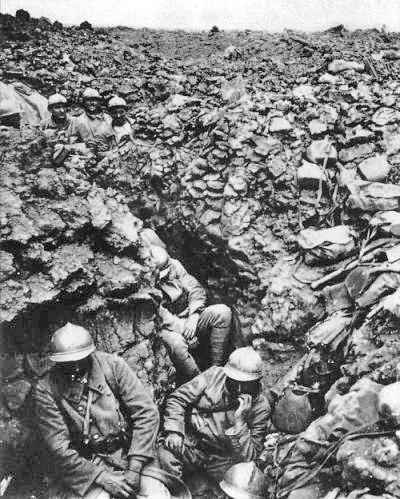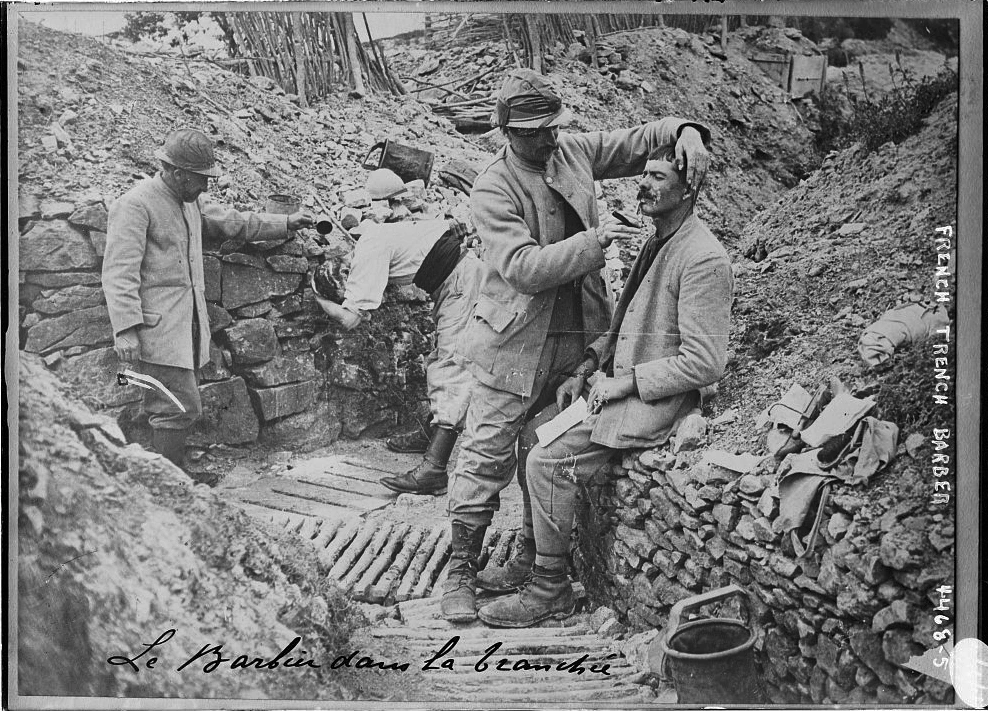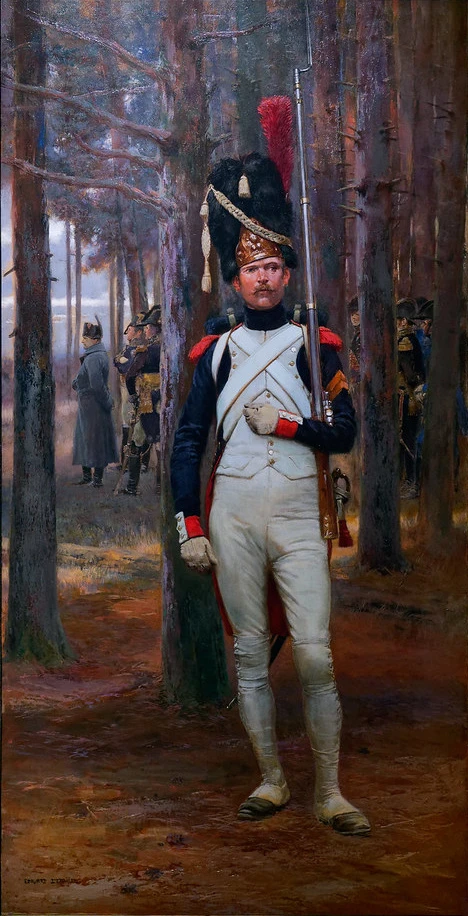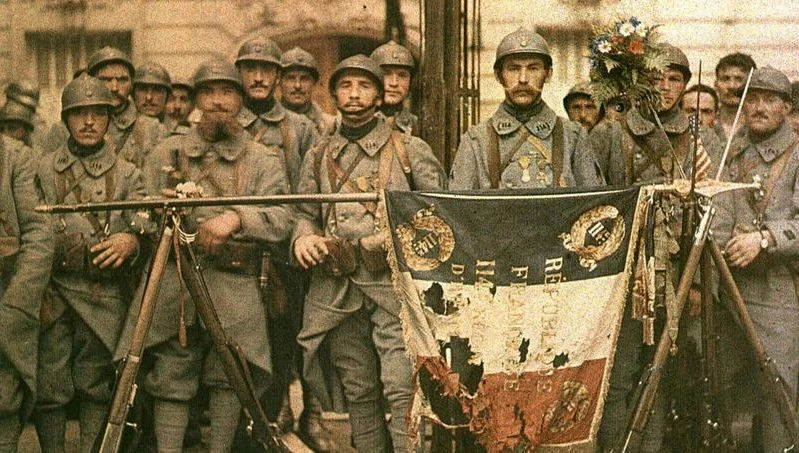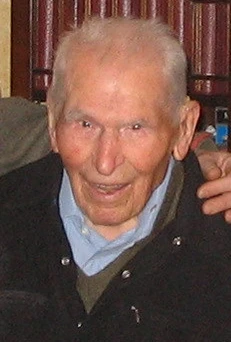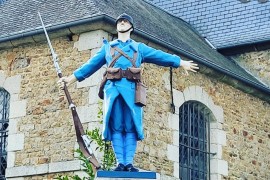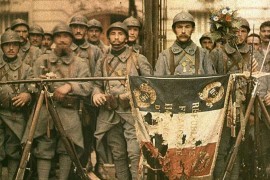The legend of the bearded poilus
Poilus in the trenches. Source photo : wikipedia.fr
In the schools of yesteryear, it was often explained that soldiers were nicknamed "poilus" because they didn't have the time or the hygiene. Basically, they didn 't have time to shave when they had to support attacks or engage in combat with the enemy. And it's true that hygiene conditions in the trenches were deplorable: mud, rain, lice... And yet, it would be a mistake to imagine that soldiers of the time didn't take the time to shave. On the contrary, they had everything they needed with them, and the arrival of gas, and therefore gas masks, would have forced them to shave their beards, so that they would be better protected and adhere better to the face.
A barber shaves a poilu in a trench. Source : Wikipedia.fr
A poilu is a courageous person
In fact, for the French of yesteryear, a poilu was a courageous person. As early as the 17th century, the term was used to describe soldiers or courageous men. At the time, hair was a symbol of virility and therefore of courage. In "Les précieuses ridicules", Molière speaks of a "three-haired brave". And this hair can be found in many 19th-century expressions, such as "avoir du poil au coeur" ("to have hair on one's chest"). It was Balzac who first used the term "poilu" to refer to the grognards, the soldiers of Napoleon 1st.
Napoleon's grognard. Image chosen by monsieurdefrance.com: painting by Édouard Detaille, Public domain, via Wikimedia Commons
And so were the soldiers of the First World War.
While soldiers referred to themselves as "les hommes", it was after the Battle of the Marne, in 1914, that the word began to emerge . After the war, the term came to be used by civilians rather than the soldiers themselves. It was also a very affectionate word. Throughout the war, 8,410,000 French soldiers and sailors were mobilized. Of these, 1,397,000 died for France.
The last of the heroes: Lazare Ponticelli
Monsieur Lazare PONTICELLI, last poilu. Image selected by monsieurdefrance.Com: By AMBERG David - Cropped from File:Lazare Ponticelli 2006.jpg, original author is AMBERG David ), CC BY-SA 3.0, https://commons.wikimedia.org/w/index.php?curid=5714491
The last poilu was Lazare PONTICELLI (1897-2008). Born in Italy, he joined the army at the start of the war, lying about his age. He was also a member of the Resistance from 1942 onwards, during the Second World War. He died in 2008, the last living poilu, and was the subject of a national tribute. A state funeral was held at Les Invalides in Paris, flags were flown at half-mast and the country observed a minute's silence. This took place on March 17, 2008 at 11 a.m.

